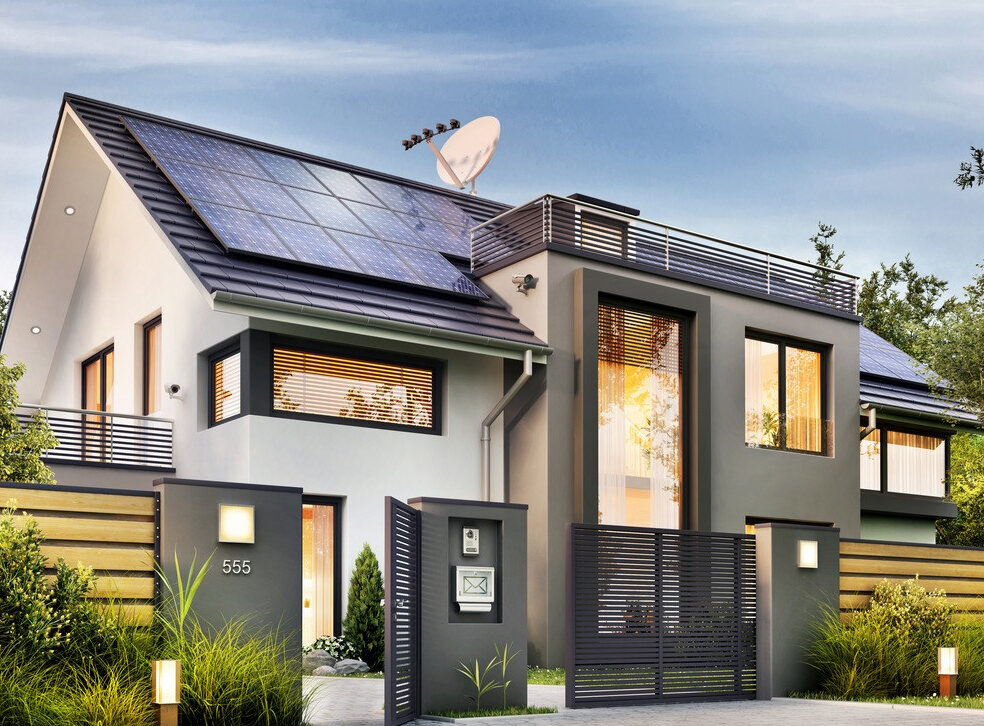
There has been a significant shift in the way homes are designed and built. The most significant is the use of smart home technology. From voice-prompted AI assistants to energy-efficient appliances, smart technology is reshaping our interaction with our homes.
The question, however, is: Does smart home technology increase a property’s value?
In this post, we’ll explore the features of a smart home, how it affects property prices, and whether it is a wise financial decision.
What Is Smart Home Technology?
Smart home technology refers to internet-connected devices and systems within a home that can be controlled remotely via smartphones, tablets, or voice-prompted AI assistants like Amazon Alexa, Siri or Google Assistant. These devices create a seamless and automated experience for residents.
Features of a Smart Home
Common smart home features include:
- Smart thermostats (e.g., Nest, Ecobee) to control home temperature remotely
- Smart security systems (e.g., video doorbells, security cameras, smart locks)
- Smart lighting (e.g., Philips Hue, LIFX) that can be adjusted by voice, clap or app
- Smart appliances (e.g., refrigerators, washers, dryers) that are energy-efficient and can be remotely operated
- Smart speakers and assistants (e.g., Amazon Echo, Google Home) for voice commands
Once, these technologies were considered luxuries, but now they are fast becoming standard features in new homes and renovations.
Effect of Smart Home Technology on Property Value
1. Higher Market Appeal and Demand
Today’s homebuyers are tech-savvy, and they look for homes that reflect their modern lifestyles. Smart homes are not only convenient, but they also enhance security and energy efficiency, which are major selling points in real estate. Studies show that homes with smart home technology sell faster and at higher prices than homes without it.
Homes with smart technology are likely to see an increase in demand, particularly among younger, tech-savvy buyers.
2. Energy Efficiency and Long-Term Savings
One of the reasons for the rise in smart home technology is their potential to reduce energy consumption and lower utility bills. For example, Smart thermostats learn your behavior and adjust the heating and cooling system accordingly, saving both energy and money.
Buyers have become more aware of the financial benefits of energy-efficient homes. Features like smart lighting and energy-efficient appliances can reduce the energy consumption of a home, which is essential in areas with high energy costs.
For real estate investors, properties with energy-efficient technology often justify higher asking prices because they ensure long-term savings for future owners, increasing the overall value of the property.
3. Enhanced Security Features
Smart home technology takes away one of the top concerns of homeowners – security. Smart security systems such as video doorbells (e.g., Ring), smart locks, and security cameras can offer peace of mind for potential buyers. A secure home is always a selling point.
Smart security features provide homeowners with real-time updates and control over their security systems, even when they’re not at home.
The presence of smart locks and security cameras can increase the perceived value of a property, making it more appealing to buyers who are willing to pay more for enhanced protection.
4. Competitive Edge for Sellers
For homeowners and real estate investors looking to sell, incorporating smart home technology can offer a competitive edge. Homes with smart features such as smart lighting, security cameras and voice-controlled systems stand out and attract more attention. This leads to higher offers and they may sell faster than properties without these upgrades.
Smart homes also appeal to younger buyers who expect homes to be integrated with the latest technology. As buyers increasingly prioritize convenience and innovation, the smart home trend is expected to continue influencing property values.
5. Insurance Benefits
Smart homes often come with advanced security and fire prevention systems, such as smoke detectors, carbon monoxide detectors, and home security cameras, which can reduce the risk of damage or loss. This can lower insurance premiums, making it more appealing for buyers.
From reducing the risk of theft and fire to detecting leaks early and improving overall home maintenance, smart home features can make homes more attractive to insurers.
Smart home technologies are not only valuable for improving convenience, security, and energy efficiency, they can also offer significant financial benefits through insurance discounts and potential claims savings. Homeowners who invest in smart technology could see both short-term and long-term financial benefits, making the upfront cost of installing smart devices worthwhile.
Conclusion
Smart home technology has come to stay – it is a significant factor influencing property values. By enhancing energy efficiency, security, and convenience, smart homes can increase a property’s appeal and ultimately, its value.
For both homebuyers and investors, embracing smart technology has become a smart financial move in today’s market. Whether you’re looking to buy a home with advanced tech features or are considering smart upgrades to enhance your property’s value, the impact of smart home technology is undeniable. It’s not just about living smarter—it’s about investing smarter too.
At aanda Consulting, our team of experienced real estate advisors will work with you to identify properties that are equipped with the latest smart home features, and provide guidance on how to maximize their value. Contact us to learn more!



